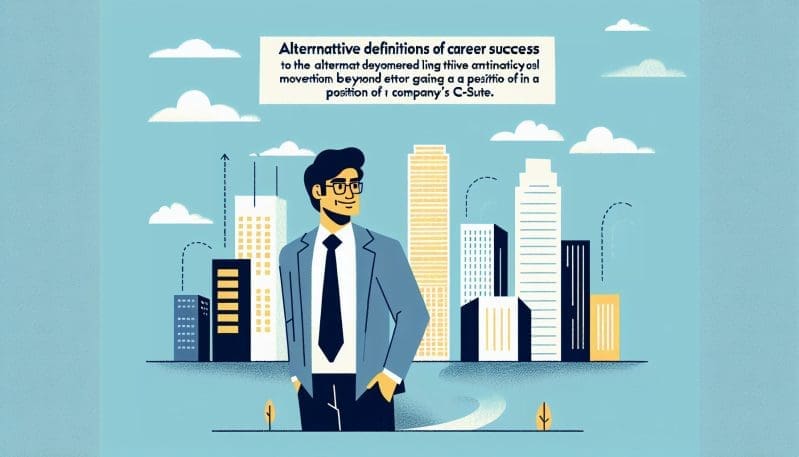Redefining Career Success: Moving Beyond the C-Suite Aspiration
- Home
- Redefining Career Success: Moving Beyond the C-Suite Aspiration

- Editors Desk
- February 7, 2024
- 0 Comments
In a world where the ladder to success is constantly being re-engineered, the traditional aspiration of climbing the corporate ladder to the highest executive level – often epitomized by the corner office of the C-Suite – is no longer the sole indicator of career achievement. The concept of success has undergone a profound transformation, reflecting a cultural shift that values diversity in career paths and personal fulfillment over a one-size-fits-all approach.
As we unpack the evolving narrative of career development, it is crucial to consider the multitude of factors contributing to this transformative era. The rise of the gig economy has introduced a new dimension to the labor market, one that prizes flexibility and autonomy over the traditional 9-to-5 model. Freelancers, contractors, and independent consultants are shaping a new paradigm, where success is measured by the ability to navigate a fluid and often unpredictable work environment. This dynamic landscape of work is a testament to the changing priorities of the workforce, especially among millennials and Gen Z, who are forging paths that blend professional satisfaction with personal passions.
The quest for work-life balance has also taken center stage. Employees are no longer willing to sacrifice their personal well-being for the sake of professional advancement. Instead, they are advocating for a more integrated approach that allows them to thrive both in and out of the office. This shift has prompted organizations to re-evaluate their workplace policies, offering more flexible schedules, remote work options, and comprehensive wellness programs.
Moreover, the relentless pace of technological advancement has redefined job roles and required skill sets, rendering some positions obsolete while simultaneously creating new opportunities. Employees are increasingly seeking roles that offer continuous learning and upskilling, ensuring they remain relevant in a rapidly changing economy.
Another critical aspect to consider is the variation in definitions of success across different generations. While baby boomers might equate success with job security and a steady climb up the corporate ladder, younger generations often prioritize meaningful work, social impact, and the ability to pivot across different roles and industries.
For employers, these shifts necessitate a recalibration of retention strategies and career development programs. Organizations that embrace these new definitions of success and offer diverse career trajectories will be more likely to attract and retain top talent.
As we navigate the changing tides of the work world, it is clear that success is no longer a linear journey to the top of an organizational chart. It is a multifaceted pursuit that encompasses personal fulfillment, professional growth, and societal contribution. In this era of unprecedented change, the narrative of career success is being rewritten, and it is time for all of us to engage in this essential dialogue.
For our esteemed readership, accustomed to the thoughtful, in-depth analysis characteristic of The Washington Post, The New Yorker, and The New York Times, we extend an invitation to join the conversation. How do you define career success in today’s landscape? What changes have you encountered or embraced in your professional journey? As we explore these questions together, we encourage you to share your thoughts and experiences, contributing to a richer understanding of what it means to have a successful career in the 21st century.

Leave A Comment